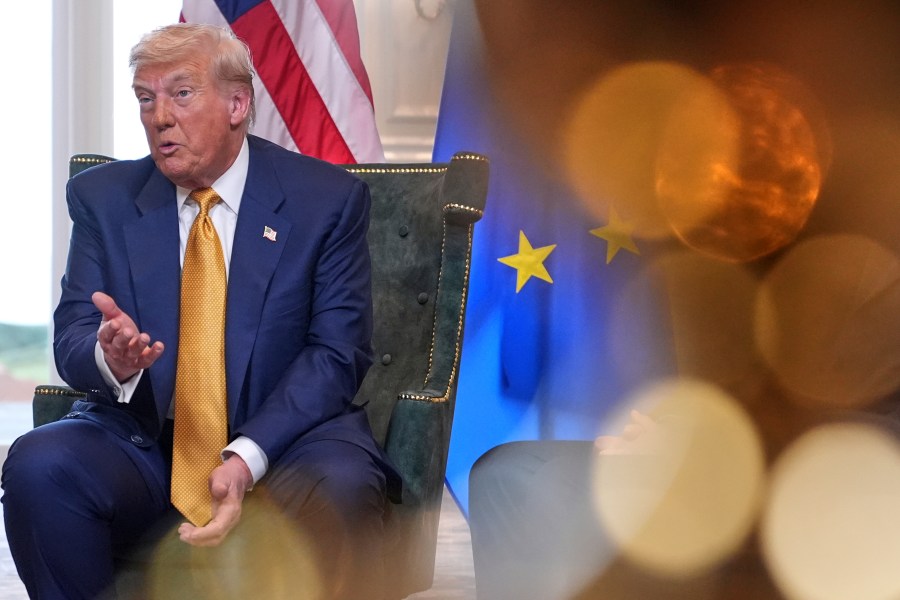The recent trade agreement between the European Union and the administration of former President Donald Trump has elicited a range of responses across Europe, reflecting a mix of relief and disappointment. While EU officials believe they have averted a significant economic crisis, critics argue that the deal falls short of expectations and lacks clarity on crucial matters.
The agreement, finalized ahead of the August 1, 2023, deadline, imposes a 15% tariff on a majority of goods imported into the United States. Although some categories are exempt from tariffs, significant sectors, such as pharmaceuticals and steel, remain unresolved. Maroš Šefčovič, the EU’s chief trade negotiator, emphasized the deal’s importance in preventing a potential escalation of tariffs that could have reached as high as 30%. He noted that failing to secure an agreement would have jeopardized nearly 5 million jobs across Europe, particularly impacting small and medium-sized enterprises.
Reactions from European Officials
Despite the avoidance of a trade war, senior officials in France expressed dissatisfaction with the outcome. Laurent Saint-Martin, France’s Foreign Trade Minister, acknowledged the agreement’s stability but criticized its lack of balance. He pointed out that the focus on goods neglects the services sector, where Europe holds competitive advantages. “The United States decided to use force to impose a new law of the jungle,” he stated, indicating the need for Europe to address this imbalance.
Similarly, Clément Beaune, France’s Strategy Commissioner, described the deal as “unequal and unbalanced,” reflecting a failure to leverage Europe’s economic power. He remarked, “When you look at it, the glass is a quarter full and three-quarters empty,” underscoring the sentiment that the EU did not assert its strength adequately during negotiations.
In contrast, German Chancellor Friedrich Merz highlighted the agreement’s potential to create a more predictable environment for businesses, which had been a key objective for the EU. He asserted, “It is good that Europe and the U.S.A. have agreed and thus avoided an unnecessary escalation in transatlantic trade relations.”
Italian Prime Minister Giorgia Meloni welcomed the agreement as a “positive outcome” that prevented a potentially disastrous trade war. However, she expressed concerns regarding specific exemptions and the overall clarity of the deal, particularly for Italy’s agricultural exports.
Criticism from Hungary and Economic Concerns
Hungarian Prime Minister Viktor Orbán, a supporter of Trump, criticized the agreement as a failure of European leadership. He remarked that the terms were unfavorable compared to a previous trade deal between the U.S. and the U.K., stating that “Donald Trump ate Ursula von der Leyen for breakfast.” Orbán’s comments reflect a broader critique of the EU’s negotiating power.
Economists also weighed in on the agreement, with varying assessments of its long-term impact. Jon Harrison from TS Lombard noted that trade deals made under pressure often lack important details, potentially leading to adverse economic consequences. Jack Allen-Reynolds, deputy chief eurozone economist at Capital Economics, projected a reduction in EU GDP by approximately 0.5%, indicating that while the deal may have avoided immediate turmoil, its effectiveness remains questionable in the long run.
Overall, the trade agreement represents a precarious balance between immediate relief and underlying challenges. As European leaders navigate the complexities of transatlantic relations, the path forward will require careful consideration of both economic realities and political dynamics.







































































